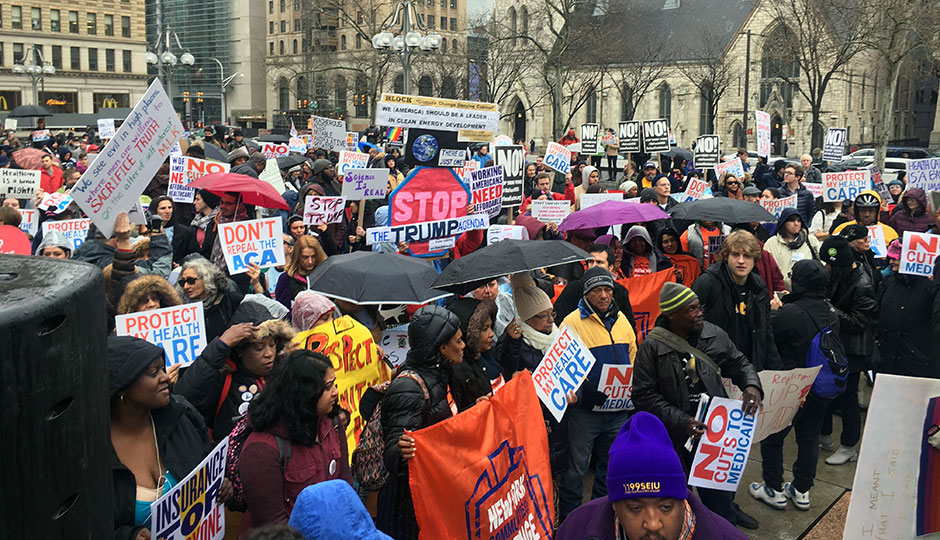OPINION: “Stronger Together” Is Keeping Us Apart

Protesters in Philadelphia in January | Photo: Dan McQuade
If you give a damn about social justice issues in 2017, you most certainly have heard the phrase “stronger together.” And, most likely, your first thought was “Ah, of course, we must all come together to defeat racism, sexism, homophobia, transphobia, ableism, classism, and more.”
The slogan of the failed Hillary Clinton campaign has now become the battle cry of progressives still trying to resist a Trump presidency. The narrative surrounding this popular message suggests that we all individually have battles to fight, but if we come together as one, we will be more effective in winning them.
This mantra would be golden in a fantasy world in which everyone’s battles were equally difficult, but it has proven itself to be unproductive and dangerous in reality. “Stronger together” by default lumps together all who feel any measure of oppression and leverages their voices evenly in an unequal world. But not all of our struggles are the same, and it’s not playing “Oppression Olympics” to state this truth — if you can’t acknowledge the various levels of struggle others face, you’re showcasing your privilege.
When racial inequality is brought up, well-meaning white people often skip over the dialogue and suggest that we all unite instead. When racial terrorism hit Charlottesville, the hashtag #ThisIsNotUs was used as a way to connect all Americans around a common message aimed at disavowing white supremacy. But black and brown people didn’t need to be told “this is not us,” because they weren’t the ones inflicting the hate — it was white people. Instead of a real genuine nationwide dialogue on racism, white people hid behind a false sense of solidarity to shield themselves from addressing their privilege — something that has yet to be maturely discussed across a large swarth of resistance circles.
The bottom line is simple: No matter how queer, disabled, old, poor, or foreign you are, if you are white, you have privilege over people of color who experience not only your shared oppression but whole other levels of oppression because of their race. Such conflicts of privilege are laid bare when a black transgender woman confronts Caitlyn Jenner’s support of Trump while the president pushes a transgender military ban. We see them in the exclusionary actions of “white feminism” during the Women’s March on Washington. And we notice it in the glaring fact that black and brown people are hit the hardest by disparities in this country — unemployment, education, mass incarceration, poverty, and health care, to name a few.
To simply believe that we all will be “stronger together” without first taking a step back to acknowledge what actually divides us is reckless. Only those with high levels of privilege would want to avoid addressing the true differences within our society, because doing so would require acknowledging their own accountability. Whether we all want to believe it or not, as long as we ignore what has divided us, we will never know how to come together. When it comes to addressing social justice, white people across all spectrums of marginalization must come to terms with their privilege and be willing to dismantle it before uniting with the rest of us.
If not, we will continue to go through this cycle of false allyship and band-aid troubleshooting that only loosens resistance as hate in this country magnifies. Those who aren’t willing to confront their privilege will only make us weaker together.


